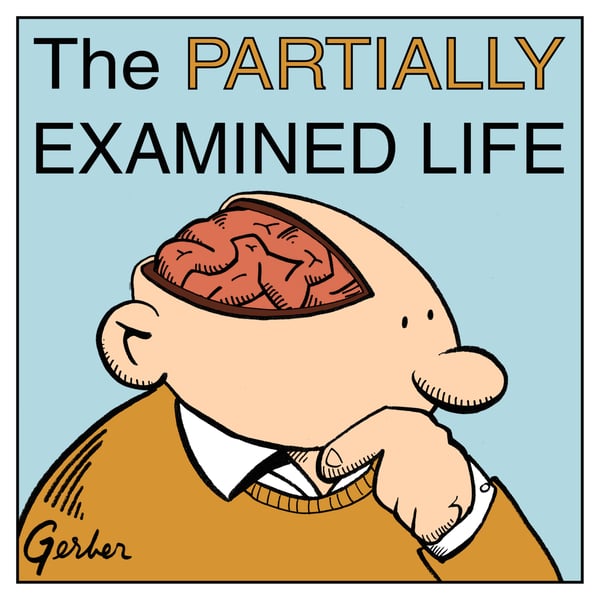Ep. 367: Hume on the Foundations of Ethics (Part One)
The Partially Examined Life Philosophy Podcast
Mark Linsenmayer
4.6 • 2.3K Ratings
🗓️ 19 May 2025
⏱️ 50 minutes
🧾️ Download transcript
Summary
On David Hume's An Enquiry Concerning the Principles of Morals (1751). What is morality, and how can we know it?
Hume claims that we simply find ourselves with sentiments morally approving and disapproving of various things. Characterizing these post hoc, we can say that in general we approve of what brings utility, and this explains the existence of most laws and mores. These may vary by culture because conditions change the utility calculation in different environments.
Get more at partiallyexaminedlife.com. Visit partiallyexaminedlife.com/support to get ad-free episodes and tons of bonus discussion.
Sponsor: Get a $1/month e-commerce trial at shopify.com/pel.
Transcript
Click on a timestamp to play from that location
| 0:00.0 | You're listening to The Parsley Examined Life, a podcast by some guys who at one point set on doing philosophy for a living, but then thought better of it. |
| 0:14.1 | Our question for episode 367 is something like, what is morality and how can we know it? |
| 0:20.0 | And we read David Hume's an inquiry concerning the principles of morals from 1751. |
| 0:25.5 | More information about the text and the podcast, please see Partially ExamineLife.com. |
| 0:29.6 | This is Mark Linsonmeyer, assiduously avoiding stepping on people's gouty toes in Madison, Wisconsin. |
| 0:35.2 | This is Seth Paskin, eternally and deeply questioning his utility in Austin, Wisconsin. This is Seth Paskin, eternally and deeply questioning his utility in Austin, Texas. |
| 0:41.7 | This is Wes Alwyn trading virtues for Gugas in Cambridge, Massachusetts. |
| 0:47.1 | This is Dylan Casey sentimentally connected to my virtues in Madison, Wisconsin. |
| 0:51.5 | I really thought someone else, it's in the reading. I did not. Bobbles, trinkets. Oh, Wisconsin. I really thought someone else would, it's in the reading. |
| 0:54.9 | I did not. |
| 0:56.3 | Bobbles, trinkets. |
| 0:57.7 | Oh, okay. |
| 0:58.7 | It's in the very last paragraph, I think. |
| 1:02.0 | But nevertheless, I thought that would be a very attractive target. |
| 1:06.1 | Well, all right. |
| 1:06.7 | So we are returning to human morality as an extension. At least my curiosity was piqued because of our recent stuff on sympathy slash empathy. Well, Hume was the, not the original, but was somebody that these folks were reacting to a sentimentalist that, yes, actually, morality is based on the fact that we do react when things happen, |
| 1:31.1 | not just to ourselves, but to other people. |
| 1:33.2 | So Hume was arguing against people who thought everything must be motivated by self-love |
| 1:38.5 | and or that morality has to come from a divine source. |
| 1:41.8 | No, morality is just something we build based on our |
| 1:45.9 | sentiments, which are given to us by human nature, even though, yes, they can vary according to |
| 1:50.6 | circumstance, according to what culture you're in, et cetera, et cetera. Yeah, we did this on episode |
... |
Please login to see the full transcript.
Disclaimer: The podcast and artwork embedded on this page are from Mark Linsenmayer, and are the property of its owner and not affiliated with or endorsed by Tapesearch.
Generated transcripts are the property of Mark Linsenmayer and are distributed freely under the Fair Use doctrine. Transcripts generated by Tapesearch are not guaranteed to be accurate.
Copyright © Tapesearch 2025.

